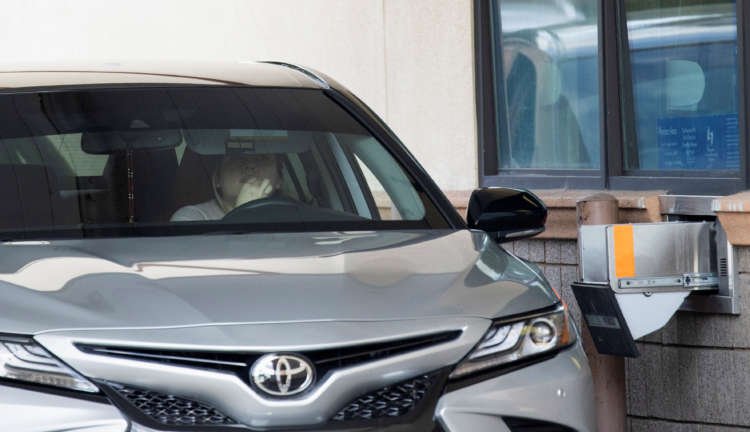Alphabet’s Verily bets on long-term payoff from virus-testing deals
Published by linker 5
Posted on January 25, 2021
4 min readLast updated: January 21, 2026

Published by linker 5
Posted on January 25, 2021
4 min readLast updated: January 21, 2026

By Paresh Dave
OAKLAND, Calif. (Reuters) – For Alphabet Inc’s Verily, a healthcare venture that is one the tech giant’s most prominent “other bets,” the coronavirus pandemic offered an immediate business opportunity.
Starting last February, the company shifted many of its about 1,000 employees to developing software for governments and employers to manage coronavirus testing.
It quickly landed major customers including the state of California, which records show paid Verily $49.6 million to use its Baseline software to schedule virus tests.
Smaller deals included a previously unreported $3.1 million grant from the National Foundation for the Centers for Disease Control and Prevention to operate California testing sites.
Verily executives said the pandemic work was a chance to demonstrate the company’s capabilities, and attract new customers.
“The conversations are naturally flowing in that way,” said Dr. Jessica Mega, Verily’s chief medical and scientific officer.
Critics say the effort has been another distraction for Verily, which has bounced between dozens of projects without producing a stable revenue stream. The venture has drawn more than $1.8 billion in funding from Alphabet and outside investors including private equity firm Silver Lake.
Converting temporary buyers into long-term clients may be wishful thinking, four industry analysts said.
Two former executives and a current employee criticized the company for taking on another one-off opportunity instead of focusing on attracting recurring subscribers to its software for clinical research, disease management and other tasks.
“I don’t think COVID will give them significant tailwinds,” said one of the people, speaking on the condition of anonymity.
Chief Executive Andy Conrad has told employees Verily is driving toward an initial public offering, and more consistent sales would be essential for a successful Wall Street debut.
Verily’s overall sales are not disclosed by Alphabet. Evercore ISI analyst Kevin Rippey estimated 2020 “other bets” overall revenue at about $650 million, with Verily contributing under $175 million. The former executives described Verily’s actual revenue as higher, and another analyst suggested $200 million to $300 million as more realistic.
‘WE HAD TO HELP’
Spun out of Google in 2015, Verily develops devices and software aimed at improving data collection, treatment, research and patient care.
It has enjoyed bursts of revenue from collaborations with healthcare companies, including work with DexCom Inc on a miniaturized blood glucose monitor and a scuttled, high-profile experiment with Alcon AG to create a smart contact lens for similar measurements.
But Verily’s financial future hinges on software products led by Baseline, which helps drugmakers enroll participants for clinical trials and analyze study data. It aims to reduce paperwork and site visits compared with traditional methods.
Mega said the company refashioned Baseline to schedule coronavirus tests after governments such as California started asking for help. The software also powers scheduling for 460 Rite Aid Corp pharmacies, which provide testing as part of a partnership with the Department of Health and Human Services.
Baseline enabled about 2 million people to get tests nationwide last year, she said, a fraction of the 250 million administered overall.
Dr. Vivian Lee, Verily’s president of health platforms, said government COVID-19 projects helped jumpstart separate testing software dubbed Healthy at Work and Healthy at School.
The new tools have 20 customers between them, including Brown University and some biotech companies, Verily said. The University of Alabama, Birmingham has spent $6.9 million on Healthy at School, according to previously unreported records.
Ralph Zottola, an assistant vice president at the university, said it is considering Verily for software to validate whether students have been vaccinated because the company has been “a good partner.”
When the need for coronavirus testing software ends, Verily aims to transition some new customers to Onduo, one of its core offerings alongside Baseline. The program includes sensors, diet coaching and other personalized tools that insurers and employers can provide for managing chronic diseases and general wellness.
Onduo counts Walgreens Boots Alliance Inc and insurers such as CareFirst as customers.
Still, both Onduo and Baseline remain very small players in medical software markets researchers say are worth over $100 billion in the United States annually, and some larger rivals like Teladoc Health Inc’s Livongo and Omada Health Inc did not divert resources to the pandemic last year.
Livongo, which directly competes with Onduo, reported sales more than doubled to $267 million during the first three quarters of 2020 compared with same period a year earlier.
Mega defended Verily’s moves during the greatest public health crisis in a century.
“Across the company, we’ve raised our hands,” she said. “There was an opportunity, we had to help, but it’s accelerating our core business.”
(Reporting by Paresh Dave; Editing by Jonathan Weber and Bill Berkrot)
Explore more articles in the Business category











